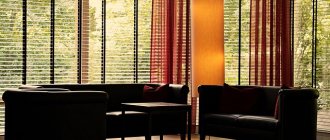A notarized statement stating that there are no other heirs is necessary in order to quickly become the owner of property left by inheritance. This is necessary to become the legal owner with the right to sell, give or change accepted values. In general, six months are allotted for conducting an inheritance case. If there is only one successor and can prove this, it will take half as much. At the same time, the procedure has one feature regarding the official application to a notary’s office.
Acceptance of inheritance in the absence of other successors
You should visit a notary’s office, write an application, and provide documents. The notary opens the inheritance case. If there are no other claimants to the deceased’s property, the sole successor writes a statement stating that there are no other heirs. The notary accepts the document, registers it, and attaches it to the file.
You must pay a fee for conducting an inheritance case. Close relatives of the deceased pay 0.3% of the assessed value of the property accepted, others - 0.6%.
When the deadline for conducting the case expires, the notary issues a certificate to the only applicant. Based on the document, property rights are drawn up and registered.
Application for inheritance
- City and full name of the notary (name of the notary office).
- Full name and address of the applicant.
- Full name, last registered address and date of death of the testator.
- Grounds for entering into property rights: the presence of a will or degree of relationship.
- Listing and brief description of assets (the application must indicate only property due to a specific heir).
- Date of writing.
We recommend reading: Deductions for posting transactions
When to apply
A notarized statement about the absence of other heirs must be submitted within six months from the date of ascertaining the fact of the death of the testator.
The six-month period begins:
- from the date set by the court, if the person has been missing for more than 5 years - indicated in the judicial act;
- from the calendar date written on the death certificate.
To properly conduct the inheritance case, you must attach one of these documents to the general set.
How to write a statement correctly
It is important to complete the paperwork correctly. When drawing up an application, information is written down as in official documents.
You must specify:
- data of the only applicant - full name, passport details, residence and registration address, contact details;
- family connection with the deceased;
- an indication that the applicant is the sole heir.
In order not to delay the process of entering into an inheritance, materials confirming family ties (certificates, archival certificates, extracts) must be attached to the application. Documents for the accepted property are attached as a separate set.
Important! If they are lost, the notary will make appropriate requests to various authorities. Each request will have to be paid separately.
Before you start filling out the application, you need to familiarize yourself with the sample form. A sample application and form to fill out is available in every notary office.
Application form:
Sample statement about the absence of other heirs
Notarized statement about the absence of other heirs
In the practice of registering real estate transactions, there are cases when, when alienating an object (room, apartment, plot, house) or a share in the right, the ownership of which arose as a result of inheritance, after some time other heirs appear (usually by law or having the right to a mandatory share), for various reasons not included in the Certificate of Right to Inheritance (see.
section 4.4.3), on the basis of which the real estate was alienated. These people try to make property claims against the new owners of the property, and sometimes file a claim in court to declare the completed alienation invalid.
Most often, the described situation arises in two cases: firstly, after the death of a mature or elderly man (his illegitimate children, real or even imaginary, may appear), secondly, during inheritance in the second order (full or half-siblings, and by right of representation - nephews and nieces).
At the same time, the “main” heirs, i.e. included in the Certificate of Inheritance may actually not know about the existence of other applicants (although in most cases the fact of their existence is hidden both when contacting a notary and during negotiations with the buyer of the received property). Therefore, in order to protect the property rights of the acquirer, it is advisable to obtain a statement from the “main” heirs that they do not know about the existence of other possible contenders for the alienated property, and it is better to propose doing this even before making a decision on the transaction (transfer of prepayment; see sections 1.3.1 and 1.3 .2).
In the application under consideration, it is also necessary to indicate that the “main” heirs undertake to satisfy all property claims of potential applicants at the expense of the funds received from the acquirer under the paid purchase and sale agreement, and in the case of a transaction by exchange or gift - from their personal funds.
This statement can be made in simple written form (in the presence of two eyewitnesses on the part of the purchaser), but it is better to have it notarized. One copy of the document must remain with the acquirer and, in the event of other heirs, be presented as such.
sample 8.1.7
To the competent authorities of the Russian Federation, as well as to all persons to whom this concerns citizens Opozdover Ivan Petrovich, male, born on November 18, 1939, passport 00 04 252821, issued by the Internal Affairs Directorate of the Mukhoransky district of the Ust-Zvezdyui region on March 28, 2005, subdivision code 100 -001, Late over Maria Ivanovna, female, 14.05.
STATEMENT
We, citizens Opozdover Ivan Petrovich and Opozdover Maria Ivanovna, being the heirs of the first stage of our son Opozdover Pyotr Ivanovich, who died on 02/14/2006 (Certificate of the right to inheritance according to the law, form 99 NP No. 7743286, issued on 09/01/2006 by Nagler M.M., acting notary of the city of Moscow Shkurnik S.S.
Land plot with an area of 1500 sq.m. with cadastral number 50:13:06 03 13:0000, located at the address: Moscow region, Pushkinsky district, village village Krasnosivy, Svinogolovy village, plot 13.
Land category: settlement lands.
Permitted use: for individual housing construction.
The specified land plot belongs to the testator on the basis of: a contract for the sale and purchase of a land plot, certified on February 27, 2001 by I.I. Babkodralov, notary of the city of Pushkino, Moscow region, register No. B-417, registered on March 25, 2001 by the Moscow Regional Registration Chamber, Certificate of State Registration of Rights, issued on February 7, 2003 by the Moscow Regional Registration Chamber, form 50 AD No. 111111, about which registration entry No. 50-01.13-4 2001-0000 was made in the Unified State Register of Rights to Real Estate and Transactions with It on March 25, 2001 , issued in exchange for Certificate series 50 AG No. 100000.
Intending to sell the above land plot to citizen Vladimir Vladimirovich Pupkin for 1,000,000 rubles. (One million rubles), we undertake in the event of the appearance of other heirs of our deceased son Opozdover P.I. (by law or will) satisfy their property claims at the expense of the sum of money received from Lupkin V.V. under the purchase and sale agreement, and in case of insufficiency of the specified amount - from your personal funds.
(full full name of the applicants and in their own handwriting, signatures)
The city of Pushkino, Moscow region, February 2, two thousand and seven.
(Next is the certification signature of a notary or the signatures of two eyewitnesses.)
Hello.
It was purchased and divided in equal shares: to me, my husband and my child. After the death of my husband, his share was divided between me and the child. Now I want to sell this apartment.
Is the notary right? What if the bank still does not provide such documents?
We invite you to familiarize yourself with a sample clarified appeal complaint
Can a bank not miss such a deal?
November 24, 2021, 18:43, question No. 1452110 Irina, Chelyabinsk 300 cost of the issue question resolved Collapse Online legal consultation Response on the website within 15 minutes Answers from lawyers (6) 15047 answers 8290 reviews Chat Free assessment of your situation Lawyer, Mr. .
Rybinsk Free assessment of your situation Hello! Is the notary right? Irina Yes, he is right, since this kind of certificate is not provided for by law. What if the bank still does not provide such documents?
Most often, the described situation arises in two cases: firstly, after the death of a mature or elderly man (his illegitimate children, real or even imaginary, may appear), secondly, during inheritance in the second order (full or half-siblings, and by right of representation - nephews and nieces).
At the same time, the “main” heirs, i.e. included in the Certificate of Inheritance may actually not know about the existence of other applicants (although in most cases the fact of their existence is hidden both when contacting a notary and during negotiations with the buyer of the received property). Therefore, in order to protect the property rights of the acquirer, it is advisable to obtain a statement from the “main” heirs that they do not know about the existence of other possible contenders for the alienated property, and it is better to propose doing this even before making a decision on the transaction (transfer of prepayment; see sections 1.3.1 and 1.3 .2).
In the application under consideration, it is also necessary to indicate that the “main” heirs undertake to satisfy all property claims of potential applicants at the expense of the funds received from the acquirer under the paid purchase and sale agreement, and in the case of a transaction by exchange or gift - from their personal funds.
This statement can be made in simple written form (in the presence of two eyewitnesses on the part of the purchaser), but it is better to have it notarized. One copy of the document must remain with the acquirer and, in the event of other heirs, be presented as such.
We, citizens Opozdover Ivan Petrovich and Opozdover Maria Ivanovna, being the heirs of the first stage of our son Opozdover Pyotr Ivanovich, who died on 02/14/2006 (Certificate of the right to inheritance according to the law, form 99 NP No. 7743286, issued on 09/01/2006 by Nagler M.M., acting notary of the city of Moscow Shkurnik S.S.
Land plot with an area of 1500 sq.m. with cadastral number 50:13:06 03 13:0000, located at the address: Moscow region, Pushkinsky district, village village Krasnosivy, Svinogolovy village, plot 13.
Permitted use: for individual housing construction.
The specified land plot belongs to the testator on the basis of: a contract for the sale and purchase of a land plot, certified on February 27, 2001 by I.I. Babkodralov, notary of the city of Pushkino, Moscow region, register No. B-417, registered on March 25, 2001 by the Moscow Regional Registration Chamber, Certificate of State Registration of Rights, issued on February 7, 2003 by the Moscow Regional Registration Chamber, form 50 AD No. 111111, about which registration entry No. 50-01.13-4 2001-0000 was made in the Unified State Register of Rights to Real Estate and Transactions with It on March 25, 2001 , issued in exchange for Certificate series 50 AG No. 100000.
Intending to sell the above land plot to citizen Vladimir Vladimirovich Pupkin for 1,000,000 rubles. (One million rubles), we undertake in the event of the appearance of other heirs of our deceased son Opozdover P.I. (by law or will) satisfy their property claims at the expense of the sum of money received from Lupkin V.V. under the purchase and sale agreement, and in case of insufficiency of the specified amount - from your personal funds.
(full full name of the applicants and in their own handwriting, signatures)
The city of Pushkino, Moscow region, February 2, two thousand and seven.
(Next is the certification signature of a notary or the signatures of two eyewitnesses.)
How to fill out the form correctly
The notary will only issue an application form, which must be filled out correctly.
To avoid any questions in the future, please fill out the following information:
- date of compilation and place;
- the title of the document is “statement”;
- details of the notary office in which the inheritance case is opened and in which certification takes place;
- information about both parties to the transaction - the heir and the testator;
- information that the applicant is the sole successor of the deceased, no others were found;
- registration number;
- heir's signature with transcript.
All documents that have undergone the notarization procedure are registered in the unified register of the FNP. They are assigned a number by which eligibility can be determined.
The absence of one of the points will result in the document being declared invalid. The presence of errors, inaccuracies and blots in the text is also unacceptable.
What information to write down
The document must contain comprehensive information about both parties to the transaction - the testator and the successor.
You must specify:
- full name;
- passport details;
- date and place of birth;
- the address where the deceased most recently lived and the place of actual registration (emphasis on this point is necessary if the addresses differ);
- SNILS - for additional identification.
When the application is submitted, the notary will make additional requests for other successors. Therefore, it is necessary to provide as much information as possible about the deceased and successor.
What additional information should I provide?
You should also identify the property that the heir is claiming.
You need to provide as much information as possible:
- location address – for real estate;
- registration numbers – for vehicles;
- a detailed description of other items for which registration of property rights is not mandatory.
The heir has the right to dispose of the inherited property. Before selling the property, you need to confirm to the buyer that the seller is the only successor and there will be no claims from other parties.
Request to the notary about heirs
How to find out which of the heirs accepted the inheritance if the inheritance period has expired? There is a statutory deadline within which an application must be submitted. It is 6 months. Situations often arise when potential heirs do not have time to assume their rights. He deals with inheritance cases of those persons who are registered within its borders. You can request a notary about the presence of heirs here. How to find out about an inheritance in another city? In practice, there are often cases when heirs live at a great distance from the testator. How can they learn about their rights? You should first try to obtain information from people who live in the same municipality and are in contact with the testator. If these attempts are unsuccessful, you should request information from the notary chamber of the entity in which the testator lived before his death. If a will has been drawn up, but you are not on the list of heirs indicated there, then you will not be able to obtain information about them from the notary.
Establishing the fact of acceptance of the inheritance and the place of opening of the inheritance is necessary for the applicant to ___________________________________________________ __________________________________________________________________________. (for what purpose does the applicant need to establish the fact of acceptance of the inheritance)
Documents confirming the fact of sole inheritance
The heir who decides to sell the inherited property must confirm to the buyers that he is the sole successor and owner. The absence of other applicants is confirmed by documents.
To do this you must provide:
- an extract from the Unified State Register of Real Estate, which indicates that the seller is the sole owner;
- a notarized certificate confirming the fact of death of the previous owner;
- notarized confirmation that there are no other successors;
- a receipt confirming liability in case of providing false information.
The last document is optional. The heir, in the event of other successors, undertakes to resolve material disputes for all parties to the transaction at his own expense.
How to write an inheritance application correctly
- coat of arms of the Russian Federation;
- place and date of its issue;
- surname and initials of the notary;
- Full name and date of death of the testator;
- Full name of the heirs, date of birth and details of documents proving their identity;
- shares of each of them;
- grounds of inheritance;
- characterization and assessment of inheritance;
- an indication of the need to register the right arising from the heirs (in cases established by law);
- encumbrances and restrictions on rights that exist;
- number of the inheritance file;
- the number under which the certificate is listed in the register of registration of notarial acts;
- the amount of state duty (notary fee, the amount of which is established by the Tax Code);
- seal and signature of the notary.
Possible problems when selling inherited property
When alienating the property right to an inherited apartment through purchase and sale, problems may arise. The heir will have to resolve them.
These include:
- the appearance of heirs before the sale;
- other applicants claim rights after the sale and registration of the transfer of rights to the buyer.
In the first case, the issue is resolved through a notary. In the second case - only through the court. Newly announced successors need to apply to the court with a statement of claim, in which they state the circumstances of the case - why they didn’t show up earlier, what kind of family ties there were with the deceased, etc.
The court will consider the case on its merits, study documents, certificates, and extracts. If there is enough evidence of family ties, the judge will rule in favor of the plaintiff. The sale and purchase transaction will be cancelled , and the apartment will have to be divided.
Please note: material losses will be great.
How to minimize the consequences
You can protect yourself from such a situation. You should prepare documents in advance.
There are several ways:
- engage in purchase and sale only if you have a document on hand confirming the absence of other successors - the document must be issued at a notary’s office;
- if there are other heirs, then you need to obtain from each a notarized waiver of the share in the inheritance;
- The notary must conduct a thorough search for other successors.
The heir must have documents confirming that he is the only contender. Then the court will not accept claims from other successors, and the sale and purchase transaction will not be annulled.
Refusal of inheritance in favor of another heir: sample
I, Oleg Valerievich Serebryakov, inform you that I renounce my share in the inherited property of my mother, Marina Sergeevna Serebryakova, who died on October 4, 2021. The notary explained to me that, in accordance with Article 1157 of the Civil Code of the Russian Federation, the refusal of inheritance cannot be canceled or taken back.
Not only the applicant himself, but also his authorized representative can refuse the inheritance. In this case, the person will not have to pay state duty or taxes. You will only need to pay for notary services (on average, their amount is 300 rubles).
Inheritance of escheated property
Among the heirs there is one who assumes his rights only in the absence or refusal of others. He inherits any property and has no right to refuse to accept it. This heir is the state. It enters into the inheritance process under special conditions and according to other rules.
- File a claim in court, asking for the restoration of the deadline for accepting the inheritance.
- Prove to the court that the reason for missing 6 months is valid.
- If the court considers the appeal to be justified, it will restore the period for entering into inheritance rights.
RAA Law
I, ______F.I.O._______, notary of the notarial district of the mountains. Moscow, Moscow region, Russian Federation, I certify the authenticity of the signature of gr. Shcherbakov Alexander Viktorovich, which was made in my presence. The identity of the person who signed the statement has been established.
When the heirs manage to agree on the transfer of the inheritance to one of them, the other must submit an application to the notary, in which it should be indicated that he has renounced the inheritance (or the share due to him) of the deceased in favor of another person. In a statement of refusal caused by the heir's reluctance to accept the testator's property, it is not necessary to indicate a specific person to whom the right to inheritance should pass. Moreover, regardless of what was the reason for making such a decision.
Filing claims against heirs and inherited property
This article will discuss the legal possibility of bringing claims against heirs and inherited property for the debts of the testator (deceased). The development of lending in Russia, as well as the increase in business activity of citizens, led the legislator to the need to settle the obligations assumed by the testator. These relations are currently regulated in part three of the Civil Code of the Russian Federation (Civil Code of the Russian Federation).
This is interesting: Benefit for Electricity for Labor Veterans of St. Petersburg
So paragraph 1 of Art. 1175 of the Civil Code of the Russian Federation establishes a general rule that the heirs who accepted the inheritance are jointly and severally liable for the debts of the testator. Joint liability of the heirs means that the creditor has the right to demand performance both from all heirs jointly and from any of them separately, both in full and in part of the debt (Part 1 of Article 323 of the Civil Code of the Russian Federation). In the absence of inherited property, the deceased borrower’s obligation to repay the loan and pay interest will completely cease due to the impossibility of fulfillment (clause 1 of Article 416 of the Civil Code of the Russian Federation). At the same time, in Art. 1175 of the Civil Code of the Russian Federation establishes a limit for liability to the testator’s creditors - each of the heirs is liable for the debts of the testator within the limits of the value of the inherited property transferred to him. Thus, the claims of creditors, regardless of their size, are limited by the value of the opened inheritance. Most of these claims are resolved in court, because creditors cannot reach an agreement with the heirs. However, when going to court, it is necessary to take into account that a claim against the heir can be brought subject to acceptance of the inheritance. In Art. 1175 of the Civil Code of the Russian Federation specifically emphasizes that the heirs must accept the inheritance, and the property must pass to them. Before the heirs accept the inheritance, creditors' claims may be brought against the executor of the will or against the estate. The executor of the will must be clearly indicated in the will itself (Article 1134 of the Civil Code of the Russian Federation), which means that if there is no will, there is also no executor. If a creditor files a claim against the inherited property, the court must suspend consideration of the case until the heirs accept the inheritance or transfer the escheated property in accordance with Art. 1151 of the Civil Code of the Russian Federation, a subject of the Russian Federation or a municipal entity. Thus, an heir who does not want to accept the inheritance or who does not want to pay off the debts of the testator may simply not apply for its registration. In this case, creditors must contact the executor of the will, if any, or the estate. However, there is a way out of this situation for the creditor. According to the rules of Art. 1153 of the Civil Code of the Russian Federation, acceptance of an inheritance is carried out by submitting to a notary an application from the heir to accept the inheritance or an application for the issuance of a certificate of the right to inheritance. At the same time, in paragraph 2 of Art. 1153 of the Civil Code of the Russian Federation establishes a presumption of acceptance by the heir of the inheritance if he has performed actions indicating the actual acceptance of the inheritance, in particular if the heir: has taken possession or management of the inherited property; took measures to preserve the inherited property, protect it from encroachments or claims of third parties; made at his own expense expenses for the maintenance of the inherited property; paid at his own expense the debts of the testator or received funds due to the testator from third parties. Thus, if the heir pays utility bills for the property, makes repairs to the testator’s property, stores it, etc., he is considered to have actually accepted the inheritance. However, without the consent of the heirs to settle the creditors' claims, this dispute is subject to consideration in court. The creditor does not care when the heir takes action to actually accept the inheritance, because by virtue of paragraph 4 of Art. 1152 of the Civil Code of the Russian Federation, an accepted inheritance is recognized as belonging to the heir from the date of opening of the inheritance, regardless of the time of its actual acceptance, as well as regardless of the moment of state registration of the heir’s right to inherited property, when such a right is subject to state registration. However, the provisions of paragraph 3 of Art. 1175 of the Civil Code of the Russian Federation - monetary claims of creditors are subject to a general limitation period (3 years) and such a limitation period is not subject to interruption, suspension or restoration according to the rules of Art. 202-205 of the Civil Code of the Russian Federation. According to Part 2 of Art. 30 of the Civil Procedure Code of the Russian Federation (Civil Procedure Code of the Russian Federation), claims of creditors of the testator brought before the acceptance of the inheritance by the heirs are subject to the jurisdiction of the court at the place where the inheritance was opened. Filing a claim against the deceased citizen himself will not comply with the provisions of clause 1, part 1, art. 134 of the Code of Civil Procedure of the Russian Federation, since only a person with civil and civil procedural legal capacity can be held liable for violation of the rights and legitimate interests of a citizen (clause 6 of the Resolution of the Plenum of the Supreme Court of the Russian Federation dated May 29, 2012 No. 9). Thus, the creditor must bring a claim against the heirs subject to their acceptance of the inherited property. In the absence of applications from the heirs to accept the inheritance, the creditor must prove the actual acceptance of the inheritance by the heirs. In all other cases, claims must be made to the property, but after its transfer to the state, or to the executor of the will, but only if there is such an executor. At the same time, contacting a notary will not help the creditor establish the circle of heirs (defendants), since the notary will be guided by the law and Letter of the Federal Notary Chamber (FNC) dated May 23, 2013 N 1164/06-09 “On information that can be reported to creditors.” According to the FNP, the creditor can be informed by the notary that his appeal about the testator’s debts has been received, that the notary is processing an inheritance case against the property of this testator, that the appropriate circle of heirs (without indicating the creditor’s identification data of the heirs) will be notified of the creditor’s claim or the fact that the circle of heirs at the time the notary receives the creditor’s claim is unknown. In such a situation, only information about the “unknown” circle of heirs may be useful to the creditor. Unfortunately, recent amendments aimed at “strengthening” the lawyer’s request have bypassed the provisions of Art. 5 of the “Fundamentals of the Legislation of the Russian Federation on Notaries,” leaving the possibility of obtaining information about heirs only to the courts, the prosecutor’s office, investigative authorities and bailiffs. Although obtaining information from the lawyer about the name and address of the heir would save both the lawyer and the court from unnecessary work. If it is not possible to obtain information about the heirs from a notary, the creditor will have to file a claim against the estate, and, as part of the legal process, find out the presence of heirs and identify them.
This is interesting: Benefits for Chernobyl victims, Vologda region
General rules for receiving inheritance
The civil legislation of the Russian Federation provides for receiving inherited property in two ways. This is receiving an inheritance based on a will, as well as inheritance by law. As for the transfer of inheritance under a will, the heirs are the persons indicated in it. And the receipt of property after the death of the testator, according to the law, provides for an established priority.
According to the law, heirs who can receive property by law include:
- 1st stage – children who are related to the deceased (natural and adopted), spouses, as well as his parents;
- 2nd stage - grandparents, blood brothers and sisters;
- 3rd stage - uncles and aunts;
- 4th line - great-grandparents, great-grandfathers, cousins or second cousins;
- 5th stage – stepmothers, stepfathers or other persons.
The basic rules for transferring inheritance in order of priority are that heirs from the second priority can receive inherited property only if there are no successors from the first priority. Or if one of the successors from the previous line refused the inheritance. The same rule applies to applicants of all queues. If it turns out that there are several successors from the same line, then the distribution of property according to the law will be carried out in equal shares.
Claim of a creditor to a notary against the debtor's heirs and inherited property
The creditor's application (demand) to the notary serves as proper notification to the heirs of the deceased debtor about the creditor's claims to the inherited property if the debtor-testator did not manage to pay off his debts during his lifetime. In particular, it serves as a pre-trial settlement of the dispute between the creditor and the heirs and is evidence in court that the creditor behaves in good faith, does not abuse his rights, does not shy away from accepting the fulfillment of the obligation and does not intend to wait for interest on the main obligation to accumulate over time, while the heirs are not aware of this debt.
As previously stated in the article Collecting debt from the heirs of a deceased debtor-testator, you must first find a notary who is handling the inheritance case. This can be done, for example, by requesting information from the notary chamber of a constituent entity of the Russian Federation in the region of residence of the debtor, and this must be done before six months have passed from the date of death of the debtor and the heirs accept the inheritance.
08 Aug 2021 lawurist7 305
Share this post
- Related Posts
- Benefits for low income
- What income should a family have to get a mortgage in the Novosibirsk region
- Benefits for families with many children in the Bryansk region
- Can a Lender Take a Car Instead of Money?









